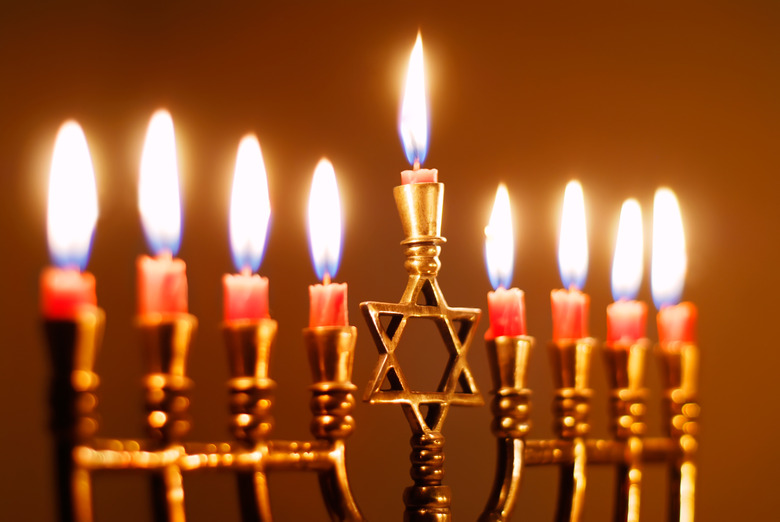Why Hanukkah Is Not 'The Jewish Christmas'
Every year when 'The Holidays' roll around, it's easy to think that Christmas and Hanukkah are relatively similar. But in reality, that couldn't be further from the truth. While Christmas is a big deal, Hanukkah is actually a minor Jewish holiday. It tends to take center stage as a Jewish holiday in the public mind because it is typically so close in date to Christmas. Jews and Christians celebrate both Hanukkah and Christmas with lights, family, presents, and food, but the two holidays are not the same.
How 21 Countries Around the World Celebrate Hanukkah
Hanukkah and Christmas are both celebrated in December, but thanks to the Jewish calendar, sometimes Hanukkah is celebrated in November. There have even been times when it's overlapped Thanksgiving! However, Hanukkah is not a major religious Jewish holiday like the High Holy Days of Yom Kippur or Rosh Hashana.
Because Christmas is such a huge holiday in the U.S. and Hanukkah happens around the same time, American Jewish families began giving their children presents during the eight-day celebration so that they wouldn't feel left out of the festivities. Similarly, that's why Jewish people began decorating their homes with lights and decorations as their neighbors who celebrate Christmas do.
However, instead of trimming Christmas trees, Jewish families' light candles in a menorah–a special Hanukkah candelabra–for every day of the holiday. The eight days of candles represent the Hanukkah miracle that was the oil that burned for eight nights instead of just one during the Jewish revolt of the Maccabees against the Syrians in the year 165 BC.
Jewish people also eat special foods during the celebration of Hanukkah, like Christians do for Christmas, only perhaps not gingerbread men or a Christmas ham. During Hanukkah, it's customary to eat foods cooked in oil. Hanukkah spreads typically include latkes (potato pancakes) and sufganiyot (jelly-filled doughnuts), as well as equally as caloric but less oily things like sweet and savory kugels, brisket, and a cinnamon-y traditional Ashkenazi Jewish stew called tzimmes, that's made with carrots, prunes, and other dried fruit.
While both holidays happen around the same time, and special decorations are put up and foods are eaten for both, they are not the same. If you want to know more, check out a gentile's guide to Hanukkah.
